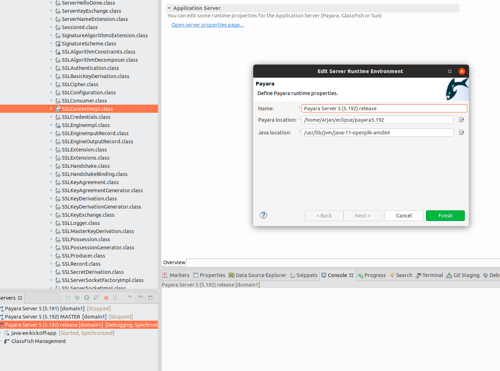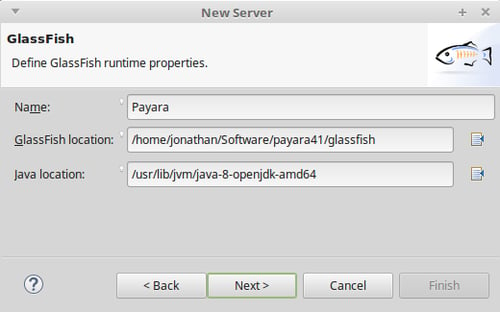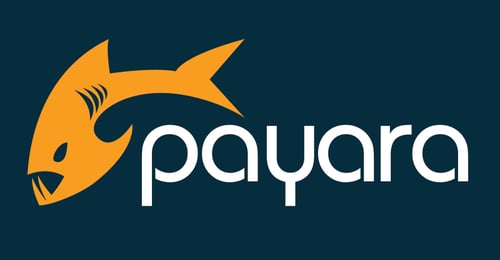Posts tagged Eclipse
Jakarta EE 9.1 Launches!
Published on 25 May 2021
by Priya Khaira-Hanks
Topics:
Java EE,
Eclipse,
JakartaEE
|
0 Comments
Payara Services are celebrating the release of Jakarta EE 9.1 Platform and Web Profile specifications and related TCKs.
With Jakarta EE 9.1, global source community Eclipse Foundation brings to Java developers the first incremental Jakarta EE release since the new namespace was introduced last year. Read the Eclipse Foundation announcement here - featuring a quote from our Founder and CEO Steve Millidge.
Payara's team have not only worked hard to ensure Jakarta EE 9.1 applications can be run in Payara Platform 5, but Payara Platform 6 alpha one is very close to being ready as a Compatible Implementation. Watch this space!
Payara Services Joins MicroProfile Working Group
Published on 20 Jan 2021
by Priya Khaira-Hanks
Topics:
Microservices,
MicroProfile,
Eclipse,
Cloud-native,
news and events
|
0 Comments
Payara is pleased to announce that we have joined the MicroProfile Working Group. This builds on our commitment to shaping and improving Enterprise Java for both microservices and monolithic architectures.
The MicroProfile project was born as a community initiative to optimise Enterprise Java with a microservices standard platform. It joined theEclipse Foundation in 2017, an independent open source software association, with the goal of driving innovation with a vendor-neutral "incubation" environment.
The Eclipse Foundation's MicroProfile Working Group encourages collaboration between participants, working in short cycles to propose and gain approval for new common APIs and functionality - and in turn drawing on the knowledge of a wide variety of different vendors. As one of the contributors, Payara engineers will shape and drive the future of the MicroProfile specifications.
We talked to our Founder and CEO Steve Millidge to find out more about what this means.
Payara Services Celebrates the Release of Jakarta EE 9
Published on 08 Dec 2020
by Priya Khaira-Hanks
Topics:
Java EE,
Eclipse,
JakartaEE
|
0 Comments
As leading contributors to the Jakarta EE project, Payara excitedly welcomes Jakarta EE 9 - now officially released!
Announced at today’s Jakarta One Livestream, the headline breaking change is the move from the package namespace javax to jakarta across the Jakarta EE 9 Platform, Web Profile specifications, and related TCKS.
Through our involvement in the Eclipse Foundation Jakarta EE Working Group, we are proud to play a major role in shaping, improving and championing Jakarta EE 9. The specifications will be key to the evolution of cloud native technologies for Java, also central to Payara's mission.
Payara Tools 1.0 - June 2019 - New for JDK 11 Users
Published on 16 Jul 2019
by Arjan Tijms
Topics:
Eclipse,
Payara tools,
JDK 11
|
1 Comment
Payara Tools 1.0 Eclipse Plugin just got a small, but important update for JDK 11 users.
Payara for Beginners – Payara ServerをEclipse IDEに追加する
Published on 19 Sep 2018
by Jonathan Coustick
Topics:
Payara Server Basics,
Eclipse,
Japanese language
|
0 Comments
Payara para principiantes: Añadir Payara Server a Eclipse IDE
Published on 13 Aug 2018
by Jonathan Coustick
Topics:
Payara Server Basics,
Eclipse,
Spanish language
|
3 Comments
Setting Up Cache JPA Coordination with the Payara Platform using EclipseLink and JMS/Hazelcast
Published on 21 Jun 2018
by Lenny Primak
Topics:
JMS,
Hazelcast,
Clustering,
Eclipse
|
6 Comments
When it comes to clustering and distributed computing performance, some of the challenges you have to overcome involve cache invalidation and coordination. Fortunately, both Payara Server and Payara Micro come with EclipseLink, which supports cache coordination and invalidation out of the box. This blog will explain how to configure this feature for your Payara Data Grid. We would also like to thank Sven Diedrichsen who is the community member that created the Hazelcast cache coordination.
Payara Tools Unlocks Eclipse For Payara 5
Published on 05 Apr 2018
by Arjan Tijms
Topics:
How-to,
Eclipse,
Payara Server 5,
Payara Platform 5
|
9 Comments
For a long time Payara, a derivative of GlassFish, could be used in Eclipse using the Oracle GlassFish Tools. With the release of Payara 5, a few problems prevented the plug-in from recognizing Payara 5, meaning Payara 5 couldn’t really be used in Eclipse. A new set of tools again makes it possible to use Payara 5 with Eclipse, along with other improvements.
Jakarta EE marks a new era
Published on 27 Feb 2018
by Mike Croft
Topics:
Java EE,
Eclipse,
JakartaEE
|
2 Comments
Nadando río arriba: Avanzando con Eclipse MicroProfile y JDK8
Published on 28 Jul 2017
by Mike Croft
Topics:
What's New,
Payara Micro,
Microservices,
MicroProfile,
Eclipse,
Spanish language
|
0 Comments
Eclipse MicroProfile es una especificación para un conjunto de APIs diseñadas para construir MicroServicios. Este proyecto ha existido desde hace más de un año y es algo con lo que Payara está altamente comprometido. Los lectores a los que les gusta estar al día con las noticias desde a comunidad de Java probablemente serán conscientes de como el proyecto ha progresado a grandes saltos últimamente. Está siendo un camino largo y arduo desde la versión 1.0 a la versión 1.1 de la especificación pero, en este momento, mucho ha sido desarrollado y hay multitud de APIs actualmente en desarrollo.
.png?width=500&name=unnamed%20(2).png)







